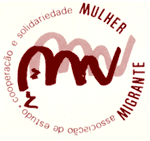My involvement with the Portuguese Community became more intense I as was asked by the Toronto Board of Education to introduce Portuguese at the Secondary School level. Not knowing much else but Lisbon, with the exception of London, England, where I had spent some time, it was my first chance to learn about one facet still unknown to me, the Portuguese Diaspora. From North to South of continental Portugal as well as the Islands, mainly the Azores, everyone seemed to have been transplanted to Metropolitan Toronto. It was home away from home. When I first visited the Portuguese quarters, along Dundas and Augusta Streets, I wept with emotion. It was like being in a small town Portuguese fair, shops selling everything one could fancy, from sardines to pasteis de nata, the most glorious eggy-crackling ones I had ever tasted in my life. The reunion with such a large warm Community fulfilled a need that had gone unnoticed till then, as if all of a sudden I had discovered a new world. I wrote a collection of short stories as an attempt to express feelings of longing and loneliness, hidden, though, under the guise of satire. One or two of those stories were included in anthologies to be used in Canadian schools where youngsters would learn about the dramas and joys of people who lived their Diasporas in Canada, some new comers themselves to the country. Breaking Through was the title of the first anthology, which I appropriated for this occasion. As I look back, it is apparent to me that I was born in Portugal, raised in Lisbon, and grew up in Toronto, if by growing up one means to mature. Returning to Portugal has not always been a smooth ride, but that story should be told another time, with a different heading, something like ?breaking through? once more, now in a Portuguese way.
.......................................................
I have mentioned the split-self or divided-self bit in my small description for this talk, the split-self resulting, metaphorically, from that invisible knot impossible to untie, some of us accommodating better than others to living in two worlds. However, comparing frequently the ?there? with the ?here?, or the ?then? with the ?now? is a risky game, often driving one into permanent schizophrenia. I have learned to live as if I were starting every day afresh, not letting nostalgia spoil a second or third chance, aware, though, that it is impossible to be away from somewhere that has somehow helped shape one?s life, however far one happens to be, however hard one tries to be away.National identity brings out pride, but it often fosters prejudice and self-interest. On the other hand, Diaspora land, for some, no man?s land, is where one feels close to being a citizen of the world, or of, at least, two worlds, hopefully, shortening the distance between ?Ourselves? and the ?Others? since we have become both. ....................................................
In White Teeth, British novelist Zadie Smith, one of the children of the Empire, whose literary voice has spoken for the peoples of the Diaspora, writes: ?this has been the century of the great immigrant experiment,? referring to the second half of the last century. Migration, transience and displacement are traits of our times, when identity has become something fluid, moving on and reshaping itself constantly, its survival depending on how skilfully one handles both uniqueness and otherness, probably the biggest challenge of the Diaspora world?
Esta é a minha pequena contribuição para o vosso? gathering?
Laura Bulger
Subscrever:
Enviar feedback (Atom)

Um testemunho, a muitos títulos, importante, e, para nós, muito significativo.
ResponderEliminarA Profª Laura Bulger é uma grande escritora - como o Canadá reconheceu, ao incluir extractos de um dos seus livros nas "Selectas" destinadas ás escolas - uma notável investigadora e pedagoga. E, "last, but not least" uma das pioneiras do Encontro de Viana do Castelo.